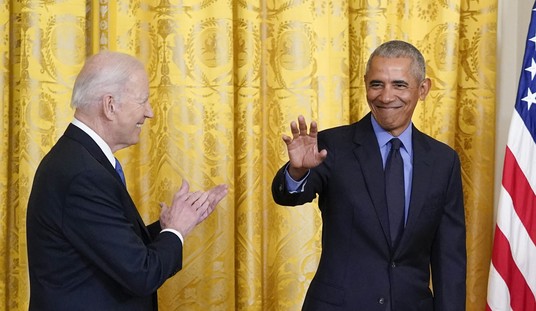Harvard University is a name once synonymous with the best in American education. Nowadays, however, they are more likely to make news for woke proclamations or dubious hires—really, the best they could get was failed former Chicago Mayor Lori Lightfoot (voted out of office) and former CNN host Brian Stelter (fired in 2022), now both teaching at the famed institution?
Naturally, when your entire educational identity is wrapped up in wokeness, equity, and inclusion, the students want a piece of the action. The Harvard Crimson, the nation's oldest continuously published daily college newspaper, recently ran a piece penned by its op-ed board that claims that required word counts in application essays are… wait for it… discriminatory toward marginalized people.
When I first looked into this, I assumed they were complaining that the required word count was too long. I figured they were going to say that decreeing 500 or 1,000 words for an essay was simply too onerous a task for some applicants. But no, they are arguing that the new word count is too short. It’s always something, right?
First, the Crimson editors point out the changes in the application process in the wake of the Supreme Court knocking down affirmative action:
These elements of the application process are as old as the Common App itself. But this year, with the end of race-based affirmative action in university admissions, applicants are facing an added uncertainty: the extent to which their diverse backgrounds can factor into their essays, and in turn, their admissions.
Recognizing this confusion, Harvard decided to change its supplemental essay questions from one optional open-ended essay and two optional short essays to a series of five required short essays, each with a 200-word limit.
Oh, the horror. The funny thing is, Harvard made these changes to try to help those from marginalized communities, not hurt them. But it’s not good enough for the Crimson:
While Harvard’s new prompts signify a notable effort to meet the moment, we have misgivings about the ability of these new questions to thoroughly capture the diverse array of student experiences.
Our foremost concern: How can students reasonably condense discussions about formative life experiences and their identities into 200 words or less? [Ed: How about by writing a decent essay?]
Moreover, shortening the essays has a disparate impact that falls heaviest on those from marginalized backgrounds. Learning to package yourself within a shorter amount of space is a product of advanced education; longer essays more equitably allow applicants to discuss their experiences in full, particularly if they are from non-traditional backgrounds and require more space to elaborate on nuanced qualifications.
Now, they don't come right out and call Harvard's new admissions policies racist, but they may as well have. When they use the phrases "marginalized backgrounds" and "non-traditional backgrounds," I'm pretty sure they're not talking about poor white people in West Virginia.
The article goes on to note that the authors "mourn the loss of Harvard’s old application" and that all efforts must continue to be made to "retain... a diverse student body."
Apparently, there is some intelligence left at Harvard, however. The Crimson printed a dissent from two students who think that the student newspaper editorial board doesn't get to decide admission policies:
From @crimsonopinion:
— The Harvard Crimson (@thecrimson) September 12, 2023
Are shorter essays really harder to write than longer ones? Well, that's not up to the Editorial Board to decide.@rubyjhuang and Joshua Ochieng #DISSENT.
Interestingly, the two students who spoke up for common sense seem to be at Harvard despite appearing to be diverse. Joshua is from Kenya, and Ruby attended the famously hard-to-get-into Stuyvesant High School in New York City. I'm sure that's just a coincidence that they spoke out against suggesting minorities and immigrants can't write clearly.
The college admissions process is fraught and problematic in many areas—see the "Varsity Blues" scandal—so I am not wholly unsympathetic to students who question the system. But my problem with the editorial board's piece is that, once again, everything is about race and identity politics. When you keep crying wolf and deem all things "racist" (even if they didn't use that exact word), the concept becomes meaningless.
With woke college students these days, virtually all subjects are controversial, so my guess is that had Harvard gone a different direction, the board would have written a different editorial—that criticized whatever decision was made.
To illustrate just how screwy the system can be, this guy made his point in just three words yet was rewarded for it:
I submitted this answer in my @Stanford application, & yesterday, I was admitted...#BlackLivesMatter pic.twitter.com/R5YxM77bWL
— Ziad Ahmed (@ziadahmed) April 1, 2017














Join the conversation as a VIP Member